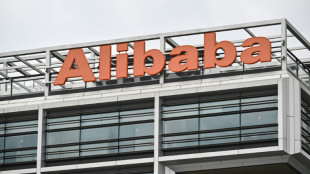
| RBGPF | 3.53% | 67.22 | $ | |
| CMSC | -0.13% | 23.37 | $ | |
| SCS | -0.89% | 12.32 | $ | |
| CMSD | 0.3% | 23.54 | $ | |
| RIO | -0.81% | 63.773 | $ | |
| BP | -0.81% | 33.895 | $ | |
| GSK | -0.37% | 36.425 | $ | |
| NGG | 0.18% | 61.21 | $ | |
| BTI | -1.81% | 37.865 | $ | |
| RELX | -2.44% | 49.21 | $ | |
| RYCEF | -1.16% | 7.74 | $ | |
| BCE | 1.14% | 23.841 | $ | |
| VOD | 1.2% | 8.36 | $ | |
| AZN | 0.78% | 74.09 | $ | |
| JRI | -0.75% | 12.725 | $ | |
| BCC | -10.85% | 105.08 | $ |

Heated immigration debate complicates Germany's search for workers
Hospital manager Kathrin Leffler says she worries Germany's tense pre-election debate on immigration will make it harder to recruit enough skilled workers from abroad to fill a growing labour shortage.
National polls on Sunday are expected to deliver victory for the conservative CDU/CSU bloc and a strong second-place showing for the far-right Alternative for Germany (AfD).
Both parties have promised a crackdown on immigration, with the AfD campaigning in parts of the country with fake plane tickets to send illegal migrants on a one-way journey home.
Potential new employees are "looking very carefully at which country they will go to in the future, where they want to live", said Leffler, director of care at a clinic in Berlin.
The recent political developments were "certainly not positive", when it comes to attracting the best and brightest from abroad, she said.
In German hospitals, some 15 percent of all medical professionals have a foreign passport, including about 5,000 Syrian doctors.
And the share of foreign workers is expected to grow as older generations head into retirement, without enough local trainees to replace them.
Some "40,000 skilled immigrants" a year are needed to make up the "demographic deficit", said Gerald Gass, the head of the German hospitals association.
The issue goes beyond healthcare. Across agriculture, construction, logistics and beyond, Germany will need "at least 1.6 million" new migrants by 2029 to fill vital roles, according to the DIW economic institute in Berlin.
Without them, it said, Germany's plans to overhaul its creaking economy could fail and "many companies will go bankrupt".
- 'Immigrant complex' -
Wassim Hadded, a 27-year-old nurse from Tunisia, is one of the skilled workers already tempted to Germany to fill a key role.
At the end of a week working night shifts at a Berlin hospital, Hadded told AFP he was "satisfied" with life in Germany.
Hadded was recruited in 2023 by the Triple Win project, which creates a pathway for healthcare workers from seven countries to come to Germany.
He said he wanted to "discover a new country, another culture" when he accepted the programme's offer, which included German lessons and help finding accommodation.
But the strange looks foreigners sometimes receive on the street could create an "immigrant complex" in their minds, Hadded said.
Germany's "welcome culture" under former chancellor Angela Merkel, who opened the door to over a million Syrian, Afghan and other refugees during the mass influx of 2015-2016, has soured in recent years.
After a series of deadly attacks blamed on migrants, the CDU/CSU last month passed a motion calling for an immigration crackdown with the support of the AfD -- a taboo-breaking manoeuvre.
The hardline stance was an attempt to "claim back this issue" from the far-right party, said political scientist Oliviero Angeli of Dresden Technical University.
The conservatives led by Friedrich Merz wanted a "change of direction", starting from the principle that humanitarian help and economic policy need to be "strictly separated", he said.
Even Chancellor Olaf Scholz's centre-left Social Democrats had "moved relatively strongly to the right" on immigration, with the government imposing stricter controls along Germany's borders.
- 'Incomprehension' -
Despite several high-profile attacks, an Ifo institute analysis published this week said there was "no correlation between an increasing share of foreigners in a district and the local crime rate".
It also proposed that "an effective way to prevent crime among migrants is through labour market integration" and called for policies that facilitate the recognition of foreign qualifications.
Scholz's government has signed deals with India, Kenya, Morocco and other countries to make it easier for skilled workers to come to Germany, but the hurdles remained significant.
"Highly bureaucratic" procedures could lead candidates to opt for other countries where entering the job market is easier, said hospital association chief Gass.
Nurse Hadded said he had to wait "more than a year" for his qualifications to be recognised in Germany.
Cutting red tape would not however be enough, Gass suggested. "The current political situation does not make Germany more competitive."
The tone of the immigration debate was met by many non-native residents with "incomprehension", said Mohamed El Kaada, the head of an association for Moroccans in Germany.
"We should not exclude those who have helped shape the country for decades," said El Kaada.
P.Rossi--IM



